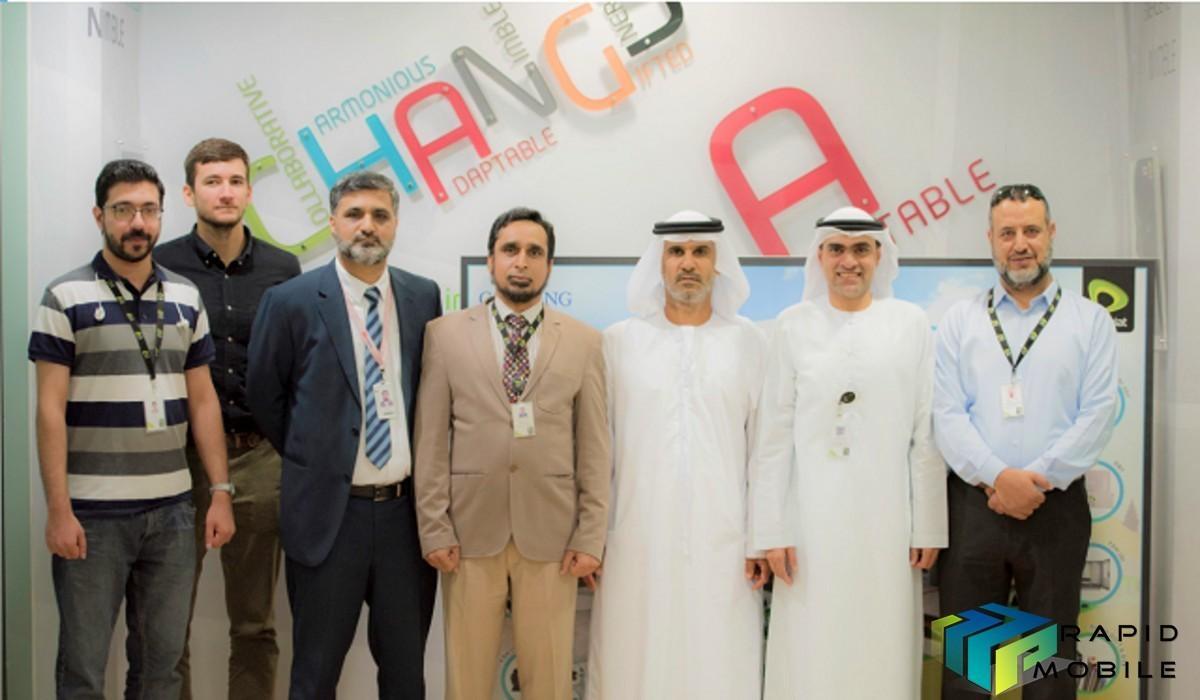UAE-based telecommunications services provider Etisalat, has worked with Huawei to complete the first trial of compact all-optical cross-connect (OXC) for the transport industry, enhancing connectivity and speed and delivering cutting-edge technology that promises to simplify optical architecture to build future networks.
The ‘OptiXtrans series OSN 9800 P32C’ trial cements Etisalat’s leading position in innovative technology for transport networks and promotes application of the OXC solution.
An OXC is a device used by telecom carriers to switch high-speed optical signals in a fiber optic network, such as an optical mesh network. The cutting-edge technology will help reconstruct and simplify optical layer architecture to build a future-oriented network infrastructure. This solution will significantly improve network scalability, shorten time to market (TTM) for new services, and reduce operations and maintenance (O&M) costs.
The OptiXtrans OSN 9800 P32C is a large-capacity OXC device that can be used in the backbone or aggregation layer. It meets the requirements for fast grooming of large-granularity services and separated east-west deployment in a transport network.
Esmaeel Al Hammadi, Senior Vice President, Network Development at Etisalat, said:
“This joint innovation project with Huawei is a result of Etisalat’s focus on its vision and strategy of ‘Driving the digital future to empower societies’. This has motivated us to continuously invest to provide superior network services for our customers. This new solution with Huawei will enhance development of the infrastructure and simplify the network, reducing service provisioning time, and improving efficiency in operations and maintenance to provide an optimal network experience for customers.”
With the emergence of new technologies and services such as cloud computing, big data, Internet of Things (IoT), and streaming media, Etisalat expects to continuously collaborate with partners in product and technology innovation, including emerging services, high-performance, large-capacity transmission, and efficient operations and maintenance (O&M). To address these requirements, Etisalat and Huawei launched a joint innovation pilot solution.
“We enjoyed working with Etisalat to complete the joint trial of compact OXC,” said Simon Lu, President of Huawei Transmission Network.
“This is an innovative solution that will redefine and simplify the methodology to develop the optical layer in the transport industry. Huawei will continue to carry out technological innovation and research to provide Etisalat with intelligent, simplified, and ultra-broadband all-optical transmission ON2.0 solutions, helping Etisalat to achieve business success.”
The tested product achieved three major innovation breakthroughs:
First, the industry’s largest capacity. Liquid crystal on silicon (LCoS) technology is used to enable the optical switching capacity to Pbps level (Peta Bits Per second) and achieve the industry’s highest compact 16-degree grooming capability. The device integration is nine times that of the traditional reconfigurable optical add-drop multiplexer (ROADM) solution, which can save 80% of the room space.
Second, the zero fiber-optic connection. Based on the industry’s unique optical backplane technology, the OXC product can print more than 1,000 optical fibers on an A4 size backplane, shortening the service provisioning time from 30 minutes to three minutes and supporting fully automating fiber scheduling.
Third, optical layer visualisation and minute-level troubleshooting. The digital optical layer adopts the Huawei-developed optical label technology to support end-to-end visibility of wavelength-level network status. The optical network troubleshooting time is shortened from hours to minutes to achieve efficient optical-layer operation and maintenance.



